Paper Takes No Stand On Dominance Of Punk Band
“An article last Thursday about the re-creation of the restroom in the nightclub CBGB, part of a Metropolitan Museum exhibition on punk influences on fashion, misspelled the surname of the club’s owner. He was Hilly Kristal, not Krystal. The article also misstated part of the name of a punk group whose name was painted on the restroom wall. They were the Dead Boys — not Dead Boys Rule, which was a critical assessment by a fan.”
Unlikely But True Event Listings: "Guns 'N' Roses At The Brooklyn Bowl"
Tonight in and around NYC: Rob Delaney at Caroline’s, Guns ’n’ Roses, Calexico up in Tarrytown, David Levinson at Word, Becky Cooper at BookCourt, and Nate Wooley and his trumpet! What a world.
One Prescription For Alcohol, Coming Right Up
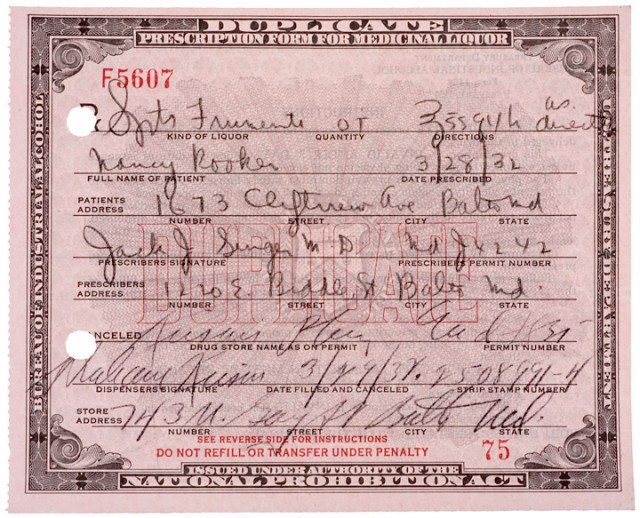
Hello, would you like to buy something weird? Hammer Time is our guide to things that are for sale in New York City: fantastic, consequential and freakishly grotesque archival treasures that appear in public for just a brief moment, most likely never to be seen again.
Six months before the Senate passed the 18th Amendment banning “intoxicating liquors,” the American Medical Association proclaimed that alcohol’s “use in therapeutics as a tonic or stimulant or for food has no scientific value.”1
Two years later, Prohibition had successfully lured millions of principled citizens into the highly lucrative, illegal liquor trade. That included physicians. Under the 1919 Volstead Act, doctors could easily procure special permits from commissioners, which allowed them to prescribe “Spiritus Frumenti” for medicinal purposes.2 There was no new study refuting the American Medical Association’s 1917 contention, and yet, during Prohibition, doctors wrote far more prescriptions for alcohol than ever before.
What was Nancy Rooker’s malady? Her prescription, which can be purchased for $295 from the Early American History Store, did not require such detailed information. Perhaps the resident of Baltimore, Maryland exhibited symptoms related to typhoid or heart disease. Lethargy, anxiety, or indigestion would have done just fine as well.3
Dr. Otto Prickhardt was more specific on a supplementary note in 1931, writing “This is to certify that the post-accident concussion of Hon. Winston S. Churchill necessitates the use of alcoholic spirits especially at meal times.”
A diagnosis cost $3, and in lieu of an actual complaint, a pocketbook full of dollar bills sufficed. After a three day waiting period, patients paid another $3 to file their prescriptions through the same doctor, or a pharmacist.
“He owned some drugstores, a lot of drugstores,” explained the sheltered Daisy Buchanan, but like her husband Tom, contemporary readers of F. Scott Fitzgerald’s The Great Gatsby found truth in that fiction. The number of registered pharmacists in New York State tripled during Prohibition, and bootleggers akin to Jay Gatsby found their stores to be a convenient front.
It’s unlikely that the spike in alcohol prescriptions can be solely attributed to opportunistic, greedy doctors, although they certainly got in on the action. The economy weakened under Prohibition, and the downturn had far-reaching effects; large segments of the population were unable to afford medicine.4 Alcohol was not much of a cure for anything, but doctors had relied on it for inexpensive relief since antiquity.5 Other doctors were likely tempted into profit sharing schemes by bootleggers, while mobsters simply relied on brute force to capture a share of the medicinal market.
In the end, the American Medical Association strongly objected to the state and federal government meddling in their profession. In 1927, they declared that “legislative bodies composed of laymen should not enact restrictive laws regulating the administration of any therapeutic agent by physicians legally qualified to practice medicine.” While the U.S. Treasury Department supplied doctors with special watermarked prescription pads, they attempted to control the amount of liquor prescribed to patients. In response, physicians defiantly meted out far more than the government deemed appropriate. They tried and failed to challenge government encroachment in the courts. Like everyone else, the American Medical Association was only freed of such regulation in 1933, when Prohibition was repealed.
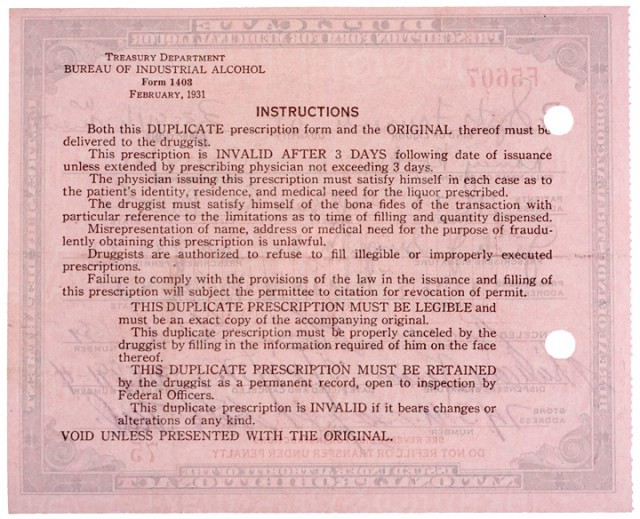
1 In 1916, the AMA removed whiskey and brandy from The Pharmacopeia of the United States, a list of approved medicines.
2 There were no provisions related to prescription beer. Religious leaders were also allowed to purchase wine the services, and the flurry of new priests, ministers and rabbis suggests that this loophole was also exploited. Churches and Synagogues were suddenly packed with new believers.
3 Obvious connections can be made to medical marijuana in California and other states, but unlike Prohibition, there is no national or statewide agency in charge of regulating the legalized industry. In California, individual municipalities do set forth their own rules, and some do choose to prohibit dispensaries altogether — a move that usually bolsters delivery services.
4 When distilleries and breweries shut down, everyone from woodworkers to truck drivers were unemployed. Entertainment was curtailed, and when people stopped eating out and going to movies, cooks, servers, busboys, ushers, truck drivers, farmers, and even the woodworkers who built furniture, suffered financially. Work became sporadic, and given the increase in illegal activities and the overextended police force, far more dangerous. Medicine was expensive, and injuries and illnesses went untreated. The government was of little help. States relied on liquor sales to fund their budgets, and some states saw revenue drop by 75 percent during Prohibition. The Federal government was even harder hit, losing revenue while spending more than ever to enforce the 18th Amendment. Income tax was more important than ever.
5 During the Civil War, a doctor was far more likely to offer whiskey than opiates, the former plentiful and the latter rarely available.
Alexis Coe is now a writer living in San Francisco, but not long ago, she was a research curator at the New York Public Library. Her work has appeared in the Atlantic, Slate, The Millions, The Hairpin, and other publications. Alexis holds an MA in history. Follow her.
New York City, June 4, 2013

★★★★★ The light was so dazzling it seemed like it had to be warm, but the air was cool and fresh. A woman’s teeth gleamed much too whitely in the shade of a scaffold; a support beam showed like a false stair tread through the light-flooded translucent landing on the way to the bottom of the Apple Store, causing a stumble. Breezes wandered the downtown streets, past the motorcyclists and the map readers. Two Citibikes peeled off the rack in the afternoon as one pulled in. Riders were out on their private wheels: a folding bike, an electric bike, a bike accessorized with a live dog in a wicker basket under a parasol. The breeze and the radiance took turns overwhelming the relevant senses. Sunset was clear and compact, an edge of bright orange, with Venus standing out like a beauty mark on the pristine blue above.
Purim Is Liquor Store Christmas For Jews
“’Jewish men are very interested in the selection of whiskey available at a wedding or bar/bat mitzvah,’ said Jonathan Goldstein, vice president of Park Avenue Liquor Shop, a Manhattan store known for its whiskey selection. ‘They very often will pick up a special bottle to offer close friends or relatives.’ Of the Friday before the Jewish holiday of Purim, last February, he said, ‘It was like Christmas in here.’”
Billy Bragg, "Handyman Blues"
Though there are some songs of his I genuinely love (“You Woke Up My Neighborhood,” “A New England,” “The Tears Of My Tracks”), I generally feel like I appreciate Billy Bragg more than I enjoy him. This one’s not bad, though, kind of slow and sad, and it features “a host of British comedy legends.” Phill Jupitus, Stewart Lee, Neil Morrissey, Ross Noble, Kevin Eldon, Ricky Grover, Samuel West, Johnny Vegas… they’re all here. Enjoy.
What Do You Do When You're At A Small Dinner Party And Bono And The Edge Start Playing?
“When you’re at a small dinner party and Bono and The Edge start playing ‘Sunday Bloody Sunday’ on an acoustic guitar, you whip out your phone as fast as you can. “
There's No Place Better To Be Than The Tour de Fat On A Saturday in DC
by John Shankman
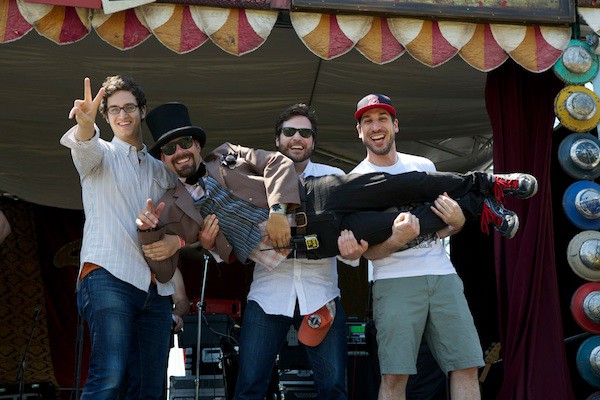
When we last left you, we were preparing ourselves for a journey to New Belgium Brewery’s Tour de Fat event in D.C. As with all journeys, one can only find what’s two steps ahead by taking the next step. We’ve taken steps, train rides, photographs and, most importantly, bike rides and are now back to report, as promised. We know you want the TRUTH BEHIND THE TRIP.
To enjoy the Tour de Fat one must like at least one of the following: Juggling pancakes, all-lady drum bands, quality brews, artisanal sausages (or food trucks, generally), wacky costumes, meeting people who are talking heads on cable TV political news shows (TdF D.C. only), performance art, music or nice people. And, oh yeah, bikes. If you do not like those then perhaps the Tour de Fat is not for you. In truth, the event reminded me of a jam band festival before all the mellow-harshers started joining the scene. Perhaps it was reminiscent of a Gathering of The Vibes circa ’96 (with better beer, more bikes and cooler “costumes”).
And while I could regale you with tales of the journey via the written word, I do believe a journey-in-pictures would be more fun. If you would like to learn more via text-based mediums though, please email Michael Macher, The Awl Associate Publisher.
All photos are by Jono Bernstein, photo crusher, producer and general all around good guy.

In our nation’s capital early enough on Saturday to catch the fine folks of Capitol Hill staying fit.
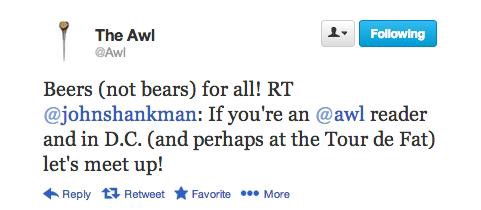
Bat (bear) signal. Also: My idea of “narrative.”

The festivities kick off with a bicycle parade. This is the look of pure joy. While joyous, he is not fully in form. Riders are encouraged to wear wonderful costumes [see future pics].
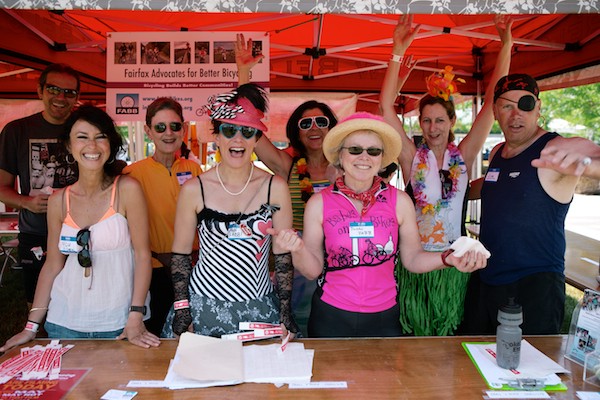
Here it is worth noting that the Tour de Fat is not pure hedonism. These fine people in addition to checking us in and having fun at their jobs are volunteers. All proceeds from sales at the TdF are given to bicycle-related non-profits. The DC Tour de Fat benefited the Washington Area Bicyclist Association (WABA) and Black Women Bike DC.
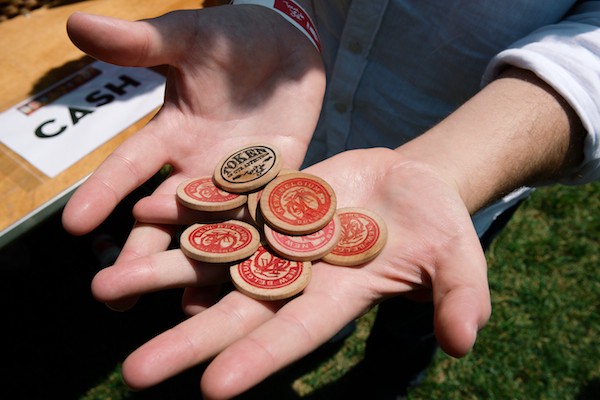
When we left the Internet, we had to trade our Bitcoins in for U.S. currency. While at the Tour de Fat a currency trade is again needed. This is the coin of the land.
With pockets full, we were ready to explore.

Holy cannoli. We found Waldo. Cheers, soul brother.

Indeed the event is a family affair. Here we meet a nice one.
Noah, Elly & Leo
How did you find out about the Tour de Fat
Noah: “This is our second year. I’m tangentially involved with WABA so I’m on the email list. We came down from Alexandria.”

This stage is the festival hub, full of curiosities, obscurities, and #rare performances.


Here we meet up with the Master of Ceremonies, Mateo. He is easily the best dressed man in DC.

His outfit becomes exponentially more awesome the more layers he sheds.

Heady brew break. Whuuuuttt.

“Kids stop hula hooping, it leads to nothing.”
— Scott Neary, Pancake Juggler

Scott Neary, Pancake Juggler

After the infamous Pancake Juggler’s performance, we were treated to a performance by Batala Washington.

Jessica
Tell us about the group you are in?
Jessica: “We’re Batala Washington. Batala is a worldwide organization and Batala is the first in the US. It’s also one of the few that’s all women. All of the Batala groups share the same costumes and music so you can join a Batala group wherever they are when you’re traveling.”
Have you always been musical?
Jessica: “I was the kid who faked playing the recorder in 8th grade.”

The Moth — a group that aims to ressurect the art of oral storytelling — also performed. This man told a story about how he didn’t learn how to ride a bike until adulthood. The sign language interpreter was also great.
And finally, my pocket buzzes.
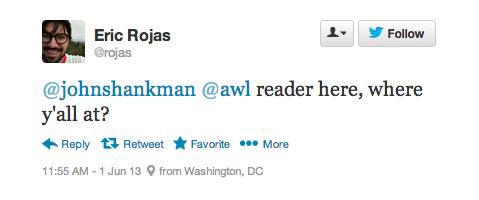
Victory was upon us.

We said see you later…

…to our new friends.

And rode off into the DC sunset.
This post is brought to you by Fat Tire. Pairs Well With People.
Ask Polly: I'm Afraid To Leave My Abusive Parents' House
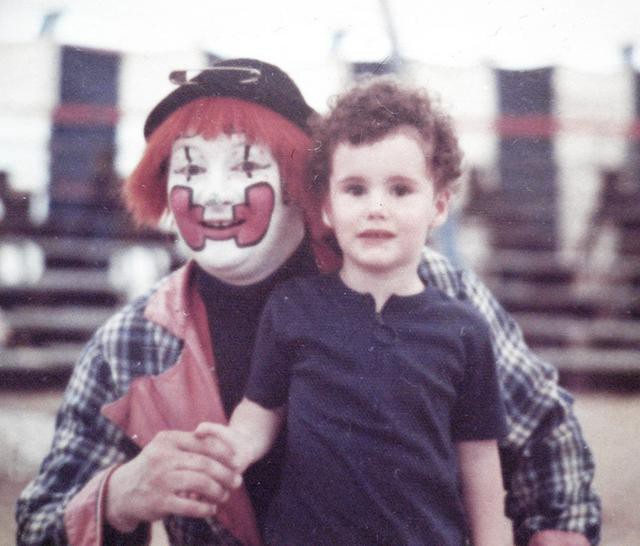
Dear Polly,
My birthday is coming up in a couple of days and I’m turning 25. Ever since I was young, 25 was the big year. The year I thought you become an adult, have your life figured out and making your way through an impressive list of accomplishment. Life hasn’t shaken out for me in that way.
I come from an abusive family. When I was younger, I chalked it up to cultural differences. My parents are conservative and traditional minded parents. They favor boys more. I am a girl. So when my brother was born, 9 years after me, I became no longer worthy of love. I stopped receiving any gifts, having my birthday acknowledged or being shown any form of affection. By the time my brother was born, they had stopped hitting me because they just couldn’t care enough.
I left for college as soon as I could. But I suffered through some unpleasant medical conditions and untreated depression and anxiety. I had to come home before I could graduate. I then promptly left for a year of service in AmeriCorps, but having no money, I had to come home. I’ve been living here for two years. My anxiety has never been worse. There are days when I’m too scared to use the escalator. Depression shadows my life completely. It is a battle of wills to get up in the morning. I don’t have insurance.
My parents have become increasingly irrational. I go to community college and work part time to save money to leave. My mom calls me lazy. My dad has now threatened to kick me out. My brother (whom I’ve always supported) calls me a bitch. When I talk to them, they won’t even respond back to me. They have started demanding my entire savings. They are unable to save. They won’t save and they want me to bail them out.
It’s taken me two years to finally have the courage to leave. I have a plan. But I’m too scared to leave. Without a BA, I know my chances of getting a good paying job is limited. I have a good job here doing what I like (working with young adults with special needs). When I move, I won’t have a car (meaning, I can’t work in the same field). I worry about unemployment.
But the real fear is that I’m not good enough to deserve a good life, to be surrounded by people who like and care about me. I’ve grown up believing that I’m a monster who destroys everything good in life. I waiver moving the ‘move-out’ date sooner. Because I’m just so scared.
I know what to do. I know I need to move and I should move sooner. How do I get over this fear? How do I feel worthy of some goodness in life?
Thanks,
Scared to Leave
Dear Scared To Leave,
You will get over your fear and feel worthy of goodness in life when you get out of your parents’ place for good. My guess is that you returned home not just for pragmatic reasons, but because you have some compulsion to right the wrongs of the past. Some part of you believes that your parents will come around and start treating you with affection and consideration, the way they treat your brother. Even if this isn’t your conscious intention, it’s acting on you. You are simply waiting around for their love. You may not think that’s what you’re doing, but there you are, in the belly of the beast, seemingly unable to move. You are waiting. You might as well be lying down in the middle of the railroad tracks.
You are not safe at home. The world outside is much safer than you think. Your parents are not going to love you the way you want them to. They don’t even want you there.
That has nothing to do with you. I want you to start repeating these things to yourself: My parents don’t want me here, because they are sick. It has nothing to do with me. I remind them of how sick they are. I am a good person. I am worthy of goodness and love.
You say you had untreated depression and anxiety. Did you ever treat it? Your fear of escalators leads me to believe that it remains untreated. Until you treat your anxiety, you’re going to see the world through a very scary lens, and you’re going to feel helpless to change anything. You need to fix that lens first, and then you’ll find it easier to move forward with your plan.
Find a therapist immediately — I’m sure there are cheap services available through your former college — and commit to seeing that person regularly. You also need to get a referral to a psychiatrist who might prescribe something to help you get a handle on your anxiety, particularly during this transition between living with your family and living on your own. Don’t skip this part, I don’t care if you have to chip into your savings a little bit to do it. Once you move out, you can reassess your financial picture and make a long-term plan, but right now you need some emergency help to get you out of the state you’re in.
Do you have to get a new job, or could you move to a place in town and keep your job and keep going to school, so you could get your BA? Are you sure you can’t get a job doing what you love in a different town? Keep working on your plan until it feels less scary and more full of promise and happiness. Make sure you honor who you are and what you enjoy (i.e. working with young people). Because you feel unworthy, you’ll be tempted to deny yourself the things you want the most, so watch out for that impulse.
Try to minimize your interaction with your parents. Tell them you’re moving out soon. Be polite and don’t tangle with them or get into arguments. Make the exit strategy the center of your sustenance. Stop returning to the source of your pain, hoping that it will magically transform into something better. It won’t.
Go get some books at the library about surviving an abusive home. When I tell you you’re a good person, you probably think, “But you don’t understand how messed up I am.” Being messed up isn’t a crime, and it isn’t that rare, either. You don’t have to be abused to be messed up. Anyone who didn’t get the love they needed when they were younger and couldn’t stop compulsively trying to get it as they grew older fits into the same messed up category. We are still good people, not damaged and unworthy. And once we exit abusive or neglectful settings, our entire concept of ourselves can shift dramatically.
You’re on a new path now, and your life is going to be amazing. Get up off the railroad tracks and you’ll realize that you’re not about to die. You’re just beginning to live. In a few years you’ll look back and say, “25. That was a big year. That was the year I changed everything.”
Polly

Dearest Polly,
I will try (and probably fail) to keep this short. I have issues with my job (boo hoo, who doesn’t?). I hate to be the person that complains about their awful boss, but my boss truly is awful. He’s said many times he isn’t good at being a manager, and boy is he right! It’s gotten to the point now that I’m pretty sure he simply hates me and is purposefully trying to make me miserable so I’ll quit. If I were under different circumstances, I would, but as it stands now, I’m working abroad and will be transferred back to my home country in a couple of months. Suck it up you say? I’ve been sucking it up for almost two years. I was 100% ready to leave but didn’t because I met someone wonderful and amazing and worth putting up with a rotten boss for. I have no regret or resentment for staying as long as I have, but I’m sick of the emotional roller coaster I’ve been on.
Some weeks I feel great and confident about my job, then something will happen, my boss will undercut me, and I’ll feel stupid and useless again. When I try my best, he will come in and change everything that I’ve done because his way is right, and only he knows what he’s doing. Though he tries to tell other people in the company we work independently, it’s flagrantly untrue since we need to review everything with him (a few people do see this, and aren’t happy about it, since it makes him the bottleneck and he’s already burdened with other work). Nothing I do is good enough. Recently, he’s simply been ignoring my emails with questions and updates. I know he doesn’t read anything I send him. But when a project that he cared deeply about was a bit delayed (not directly my fault, I was waiting on a reply from someone else that came late), he was furious. He made me feel so shitty and pretty much threatened to fire me for not updating him and making the project move along faster (I cannot *force* people to respond to my emails!).
He’s said in the past that my colleagues and I are “stupid,” will often belittle us by saying we are “nothings” and “losers,” pretending these are cute terms of endearment. He’s often racist but thinks he’s funny (racist about other people in general, and directly at what he perceives my heritage to be). I’m supposed to just laugh this all off. On rare occasions, I’ll receive a dollop of praise, or an acknowledgement that I have worked very hard. It feels nice, but usually it’s tempered by “but you still have so many other things to improve.” It’s worth adding that out of the nine people hired for this position through the years (myself included), three have been fired for “not getting” what we do, one is about to be let go, and one just was hired, so she hasn’t had the chance to prove herself yet.
So it’s gone, up and down, ruining my self-confidence and making me feel like I will never understand what I’m supposed to be doing at my job. Which, I should mention, isn’t anywhere near brain surgery. If you’ve ever watched Bill Hicks, he equates what I do to Satan’s work.
Is it just me, you may ask. I have a coworker who is great, but has worked with my boss in the past, so they have a very different relationship. He doesn’t understand my problems. I have another colleague who works with my boss less than I do, but is also plagued with self-doubt (and tends to be not very confident anyway). We commiserate sometimes, but I mostly feel alone and that I can’t confide in anyone. There is one high-ranking person in the company I have considered approaching, but I am not sure what will happen by complaining. My boss isn’t going to get fired, and I am afraid he’ll know I’m the one who tattled. My boyfriend is tired of hearing me complain about it. I feel somewhat powerless to do anything because almost everyone else in the company thinks my boss is God and the work I do is trivial and mechanical (it’s anything but). All they see is the final result, not the hours of late nights I’ve poured into it, nor the gallons of tears I’ve shed from feeling so stupid, and they don’t feel the deep sick feeling in my stomach that I feel when I hear his voice.
So — what the fuck do I do here? I *know* the answer is to just deal with it for another few months, and quit once I am safely at home. I have a little bit of money saved up so I think I can afford to be jobless for a month or two. But these are going to be the longest two months of my life. I have battled severe chronic depression my whole life, and being at this job just makes me so fucking SAD. My work isn’t helping anyone (except me, to live a comfortable lifestyle), so I wish I could just be more blase about this evil little man. But goodness, how he can make me feel like I’m worse than the shit on the bottom of his shoe!
Can I change myself? My behavior? What can I do to make it through these months (and do you think it’s possible for me to actually stay at this job without jumping out of the window?)
Thanks Polly.
Too Sad for a Clever Name
Dear TSFACN,
Your boss is a serious dick. That’s obvious. It doesn’t really matter if other people can see it or not. The only relevant point is that he treats you like shit. For whatever reason, he’s the flavor of fuckwad that really savors abusing and ignoring and dismissing and berating someone like you. Did you read the first letter? His dickishness has nothing to do with you. This guy basically wants you gone, even though you do a great job. You make him uncomfortable. He’s not going to make you feel good about your work. He wants you to feel ashamed, because he’s ashamed of himself. You are a reminder of just how twisted up he is inside, that’s all. It’s not your fault.
That said, he’s also become a symbol for you, of rejection, of withdrawn love, of parental dismissiveness, of abuse, of evil in the world. I don’t know how he figures into your emotional past and your psyche, but you keep going back to this sore place and wanting to change it, heal it, make yourself stronger, make him see what a dick he is. This problem has ballooned out of proportion for you, because it signifies work that you still have to do on yourself. That doesn’t mean it’s all your fault; it’s not your fault. But right now, you’re using this abuse as a way to work through something from your past. You’re returning, somewhat compulsively, to the scene of the crime. Instead of keeping your head down and doing what you do and laughing off this bastard’s weak tricks, you’re in turmoil over him.
So, while he is a terrible fucking boss and probably a shitty person to boot, the compulsive side of this needs to be explored. You are pouring all of your energy into this problem. That means that your next boss might be pretty ok, but you might still get touchy and weird and needy about how he or she treats you. In order to avoid that, you should explore, in detail, what damage and issues are being kicked up by this guy. The more you can look at those things, and be honest with yourself about behavioral patterns that might not function that well in the workplace, the better off you’ll be.
As an example: These emails he doesn’t read. You should probably stop sending him detailed emails, huh? Instead of wasting your energy? I was in the habit of sending long emails to a boss of mine at a former job, because I didn’t know how to say what I needed to say while taking into account how busy he was. But then I’d feel annoyed when he didn’t read my emails closely. I was being naïve, and he was trying to point that out by ignoring me (“ignore” is the “fuck off” of the modern workplace). Let’s face it: Offices are not normal. We are expected to speak in clichés and small talk and jargon, to be enthusiastic and never ambivalent, to go with the flow and question nothing. That said, though, let’s be practical about this: Until you’re making detached, cool judgments about the most appropriate and efficient ways to behave at work, you’re going to feel angry and defensive and hurt by things that are as simple and superficial as communication style.
You can learn more about this at your next job, because you won’t have a complete dick for a boss, so you’ll be far less confused about what’s happening around you. That’s the problem with dicks: They’re confusing. They make us question ourselves for things that aren’t our faults, and they make us refuse to take responsibility for things that are our faults.
I would ride it out for two months and then quit. Power down emotionally at work, but look closely at what this guy symbolizes for you. Enlist a therapist or a very close friend to discuss it. Tell your boyfriend you want to talk about the problem constructively, not just complain, but you need him to be patient and help you with that. Look for work before you leave the job. Investigate getting transferred to a different boss or department, ideally without laying any blame. Yes, you could complain to a higher up, but that’s risky and could backfire. You need an exit strategy, though, so you feel less panicked when two months is up.
These two months will pass by quickly, once you have a plan. And when you’re finally free, promise yourself that you won’t settle for a shitty situation again. Life is too short to spend any time around repugnant, disrespectful losers. Plenty of people simply refuse to work for assholes. Become one of them.
Polly
Is your boss ALSO an asshole? Write to Polly and find out!
Heather Havrilesky (aka Polly Esther) is The Awl’s existential advice columnist. She’s also a regular contributor to The New York Times Magazine, and is the author of the memoir Disaster Preparedness (Riverhead 2011). She blogs here about scratchy pants, personality disorders, and aged cheeses.
Clown photo by Amy van der Hiel. Scary baby photo “dawnzy58.”
Grain Names, In Order Of Suitability As Names For A Heavy Metal Band
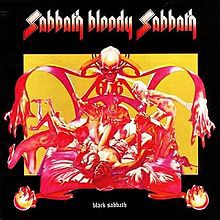
20. Oats
19. Wheat
18. Rice
17. Barley
16. Corn
15. Buckwheat
14. Spelt
13. Rye
12. Grano
11. Farro
10. Bulgur
9. Millet
8. Triticale
7. Emmer
6. Kaniwa
5. Sorghum
4. Einkorn
3. Teff
2. Kamut
1. Amaranth
